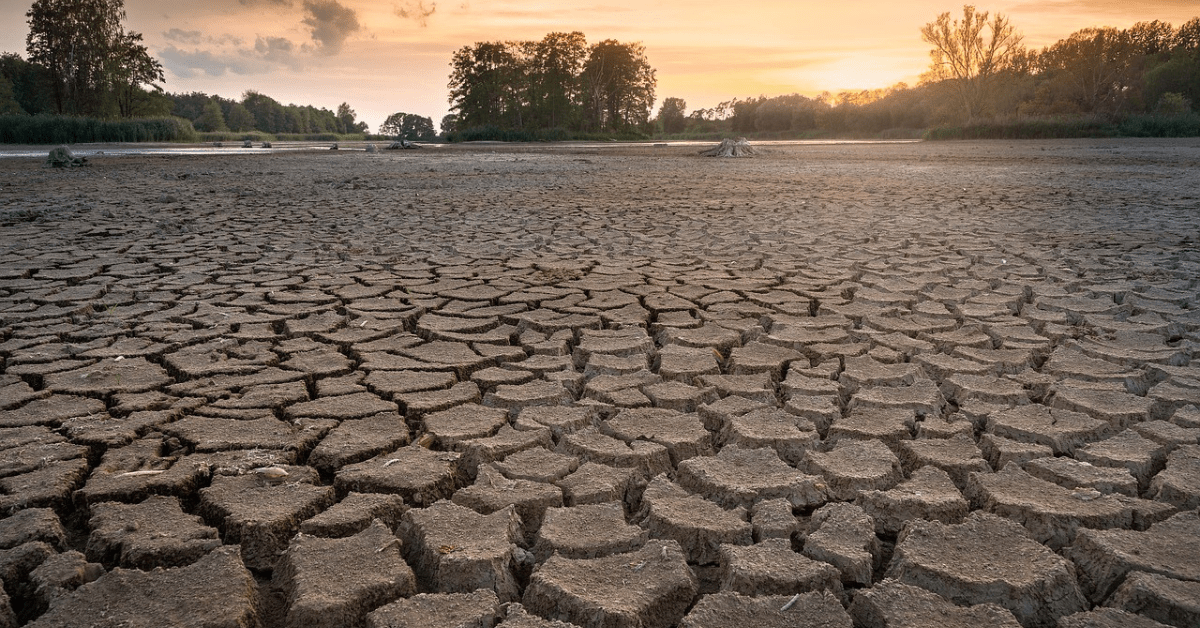Every year on June 17th, World Day to Combat Desertification and Drought raises awareness of these issues and promotes action. Throughout the world, desertification and drought pose pressing environmental challenges. Desertification, drought, and the causes and consequences of drought are all illustrated through a global observance such as this.
The United Nations established the World Day to Combat Desertification and Drought to promote global awareness about the difficulties faced by desertification and drought. It enables governments, organisations, and individuals to come together in order to carry out sustainable land management methods and encourage environmental conservation.
Desertification is a process because of which productive land slowly turns into a desert, usually as because of human-caused events such as deforestation, overgrazing, and poor farming methods. This ultimately results in biodiversity loss, soil degradation, and the displacement of inhabitants that rely on the land for a living.
Whereas drought is an long duration of low rainfall that can result in major shortages of water and severely harm ecosystems, farming, and human populations. Droughts can cause crop failures, food shortages, and greater competition for scarce water resources, aggravating poverty and social instability.
Causes of Desertification and Drought
- Climate Change: Desertification and drought are worsened by rising temperatures worldwide and changed rainfall patterns. Climate change increases evaporation rates and interrupts precipitation cycles, causing aridity to increase in regions that are vulnerable.
- Deforestation: The depletion of trees disturbs the fragile balance of nature and decreases land’s capabilities to retain rainwater. Deforestation also adds to soil erosion, increasing at risk of desertification.
- Overgrazing: Uncontrolled animal grazing can cause vegetation overexertion, resulting in compaction of soil and hampering normal plant regeneration. Overgrazing contributes to the process of desertification.
- Unsustainable Agricultural Practices: Improper irrigation, excessive fertilizer and use of pesticides, poor land management methods may reduce soil nutrients, deteriorate the composition of soil leading to desertification.
Consequences of Desertification and Drought
- Loss of Biodiversity: Desertification and drought cause biodiversity loss by affecting ecological systems. Several species of plants and animals struggle to live in dry conditions, leading to loss of biodiversity overall.
- Food Insecurity: Desertification impacts the area of cultivable land available for farming, decreasing food production and increasing food scarcity in impacted areas. Droughts lead to crop failures and losses of livestock.
- Water Scarcity: Droughts reduce the supply of water, thus having an impact on human civilizations and ecosystems. Water shortage decreases availability of clean drinking water, leads to hygiene problems, and adversely impacts agricultural irrigation.
- Socioeconomic Impacts: Desertification and drought can have serious economical effects. Communities that rely heavily on agriculture are at risk of more poverty, migration, and a lack of stability.
Mitigation Strategies
- Reforestation and Afforestation: Planting trees and rehabilitating forests aids in the fight against desertification by minimising soil erosion, improving absorption of water, and restoring ecosystems for different species of animals.
- Sustainable Agriculture: Adopting sustainable methods of agriculture such as agroforestry, organic farming, and efficient irrigation systems lowers soil degradation and increases water conservation.
- Soil Conservation Measures: Terracing, contour ploughing, and cover cropping all help to reduce soil erosion and preserve soil fertility, hence reducing desertification.
- Water Management: Water management practices such as rainwater harvesting, wastewater recycling, and water-efficient technology aid in helping to battle against drought and guarantee sustainable water usage.
Celebrating and Participating in the World Day
- Awareness Campaigns: Organise awareness programmes at local schools, universities, and community centres to educate people about the causes, consequences, and solutions to desertification and drought.
- Planting Events: Organise tree-planting activities to rehabilitate damaged regions and raise awareness about the necessity of reforestation in combatting desertification.
- Sustainable Practices: Urge people and communities to adopt environmentally friendly practises such as water conservation, recycling, and reducing carbon emissions.
- Policy Advocacy: Campaigning for legislation that encourage sustainable land management, support reforestation initiatives, and give funds for drought-resistant farming systems.
- Knowledge Sharing: Organise seminars, webinars, and workshops to exchange information and experiences about managing desertification and drought, with the goal of encouraging collaboration and creativity.
Desertification and drought are major threats to the environment, ecosystems, and economy all across the world. The World Day to Combat Desertification and Drought serves as a reminder of how critical it is to take preventative measures to protect and restore our ecosystems. We can work together to prevent desertification, promote sustainable land management, and assure a more resilient future by understanding the causes, effects, and effective mitigation techniques.
